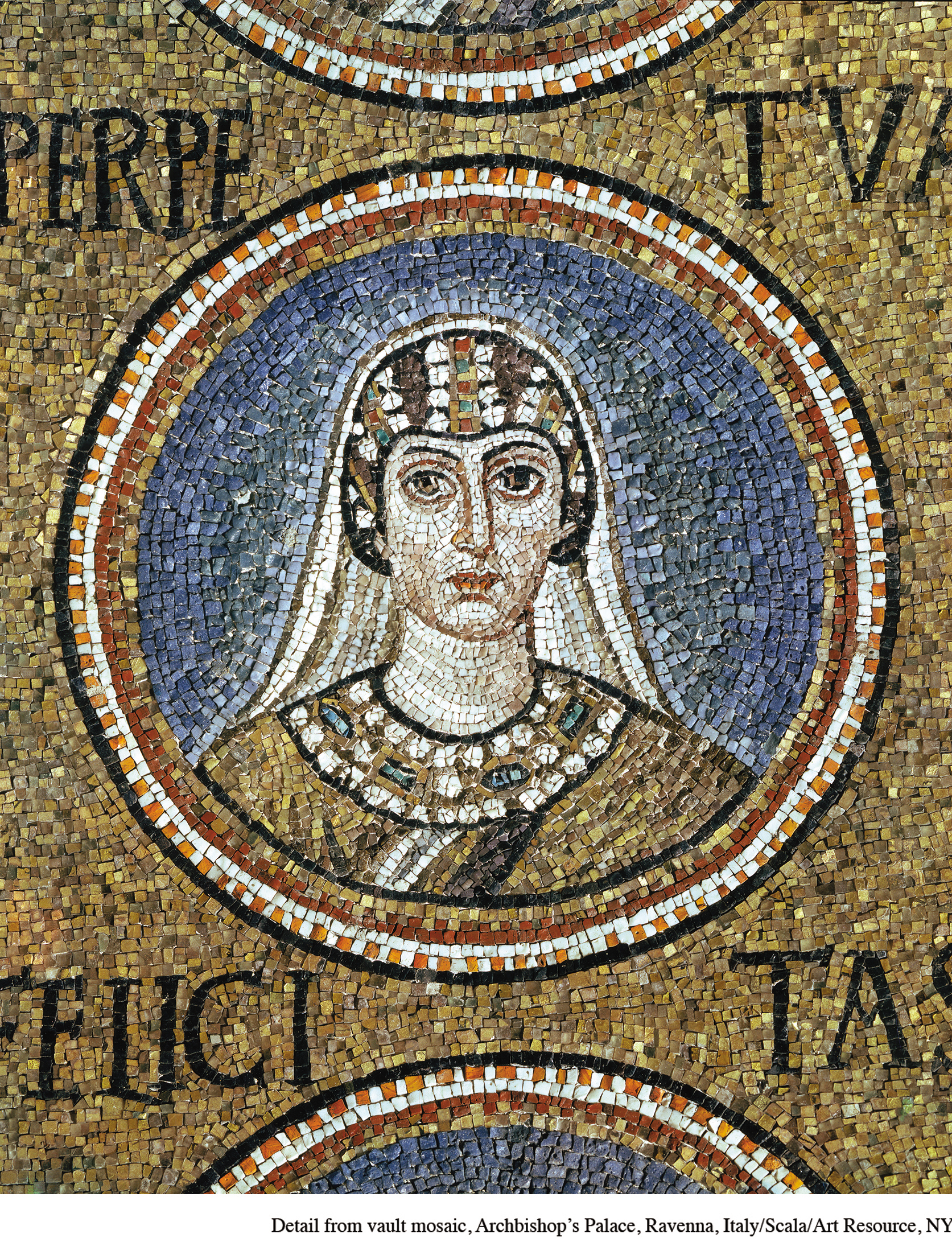ZOOMING IN: Perpetua, Christian Martyr

“The blood of the martyrs,” declared the Christian writer Tertullian, “is the seed of the church.” Few of those martyrs, whose stories so inspired the persecuted converts of the early Christian centuries, could match that of Perpetua, a young woman whose prison diary provides a highly personal account of her arrest and trial.26
Born in 181 C.E. in the North African city of Carthage, Perpetua hailed from an upper-
Once in the “dark hole” of the prison, Perpetua was terrified. It was crowded and stiflingly hot, and she was consumed with anxiety for her child. Several fellow Christians managed to bribe the prison guards to permit Perpetua to nurse her baby son. Reunited with her child, she found that “my prison had suddenly become a palace, so that I wanted to be there rather than anywhere else.”
A few days later, Perpetua’s deeply distressed non-
On the day of her trial, with her distraught father in attendance, the governor Hilarianus also begged Perpetua to consider her family and renounce her faith by offering a sacrifice to the emperor. Again she refused and together with her four companions was “condemned to the beasts,” a humiliating form of execution normally reserved for the lower classes. Although she was now permanently separated from her child, she wrote, “We returned to the prison in high spirits.” During her last days in the prison, Perpetua and the others were treated “more humanely” and were allowed to visit with family and friends, as the head of the jail was himself a Christian.
But then, on the birthday of the emperor, this small band of Christians was marched to the amphitheater, “joyfully as though they were going to heaven,” according to an eyewitness account. After the prisoners strenuously and successfully resisted dressing in the robes of pagan priests, the three men were sent into the arena to contend with a boar, a bear, and a leopard. Then it was the turn of the women, Perpetua and the slave Felicitas, who had given birth only two days earlier. When a mad cow failed to kill them, a soldier was sent to finish the work. As he approached Perpetua, he apparently hesitated, but as an eyewitness account put it, “she took the trembling hand of the young gladiator and guided it to her throat.” Appended to her diary was this comment from an unknown observer: “It was as though so great a woman, feared as she was by the unclean spirit, could not be dispatched unless she herself were willing.”
Questions: How might you understand the actions and attitudes of Perpetua? Is her experience accessible to people living in a largely secular modern society?